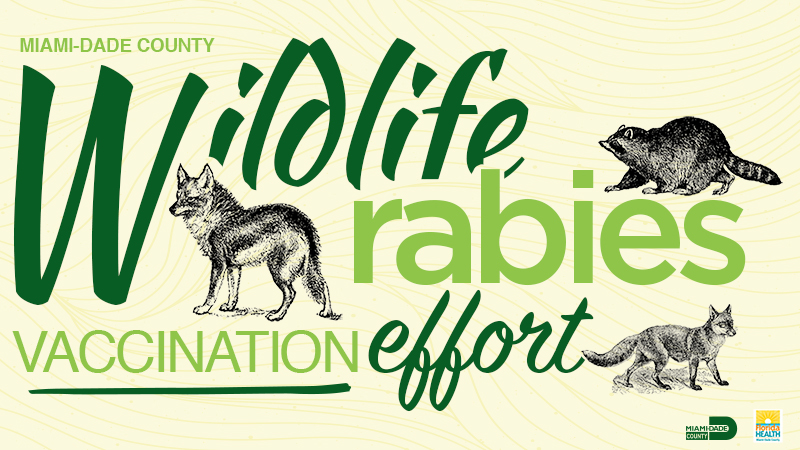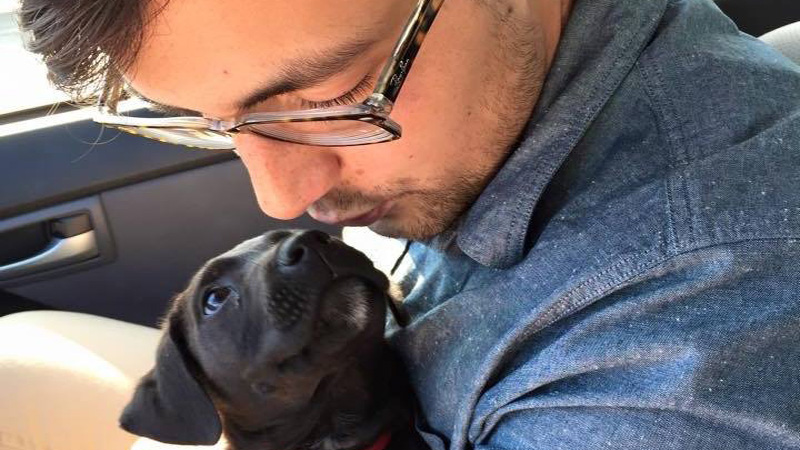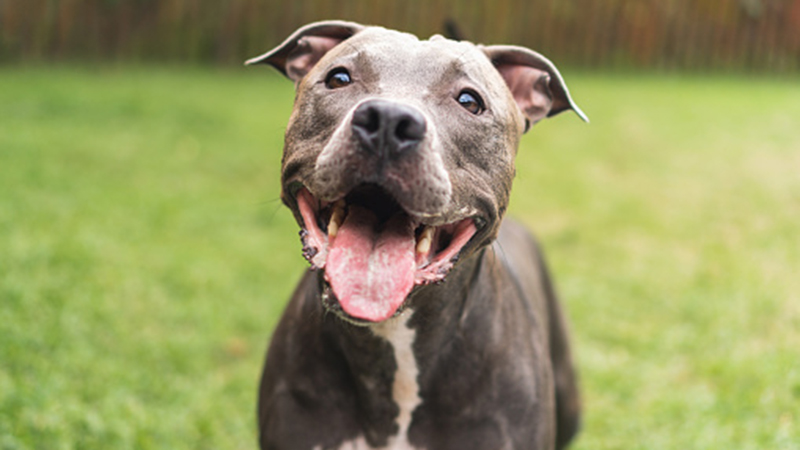-
News & Social Media
-
Create a new miamidade.gov account
A miamidade.gov profile allows you to link to your Water and Sewer customer account, as well as subscribe to a variety of news and alert services.
Receive weekly news & events, public notices, recycling reminders, grant opportunities, emergency alerts, transit rider alerts and more.
-
-
Employee Portal
-
My Employee Portal
Employees can login to access personnel information, workplace tools, trainings and more.
-
Wildlife rabies vaccination effort underway

Miami-Dade County workers have started placing edible vaccines around dumpsters, lakes and waterways - in both rural and inhabited areas - to attract wildlife such as raccoons, foxes and coyotes.
The vaccine is safe and effective and not dangerous for people or pets. It increases immunity against the virus in wildlife and is a preventative, rather than curative, measure.
Rabies is a viral disease carried by mammals that is deadly to humans and animals if not treated shortly after exposure. It can be prevented but it cannot be cured once symptoms become evident. In Florida, raccoons, bats, foxes, coyotes and unvaccinated cats are the animals most frequently diagnosed with rabies.
County workers wearing "Wildlife Rabies Management" T-shirts are placing rabies vaccine bait packets called Raboral V-RG. They resemble ketchup packets and are coated with fishmeal that is appetizing to wildlife. The animals puncture the package and consume the liquid vaccine.
If a vaccine packet is found, it is best to leave the bait where you found it. If you need to move a consumed or intact vaccine packet, wear a glove or use other protective covering (e.g., paper, plastic bag) and dispose of it with your regular trash.
Wash your hands thoroughly with soap and water after any contact with a vaccine packet.
Facts about rabies
- An animal typically gets rabies from saliva, usually from a bite of an animal that has the disease
- There were a total of 11 rabies cases in Miami-Dade County in calendar year 2018. The cases were comprised of eight raccoons, two cats and one otter. This represented about 10 percent of all cases statewide, which was a considerable increase from previous years. Since the implementation of Animal Services’ Wildlife Rabies Vaccine Distribution the number of rabies cases reported in Miami-Dade County have decreased significantly, with only two cases in 2019 and one case thus far in 2020.
- Make sure your dogs and cats are vaccinated against rabies and that dogs wear their rabies vaccination tag at all times. They should also wear an identification tag with their name and your address and phone number. Microchipping is an easy and affordable way to provide permanent lifetime identification for your dogs or cats
- If you are bitten, seek medical help and call 305-324-2400
- Report an animal bite
- If your pet is bitten, visit the veterinarian and call 311
Leaving Miami-Dade County
You are now leaving the official website of Miami-Dade County government. Please be aware that when you exit this site, you are no longer protected by our privacy or security policies. Miami-Dade County is not responsible for the content provided on linked sites. The provision of links to these external sites does not constitute an endorsement.
Please click 'OK' to be sent to the new site, or Click 'Cancel' to go back.





